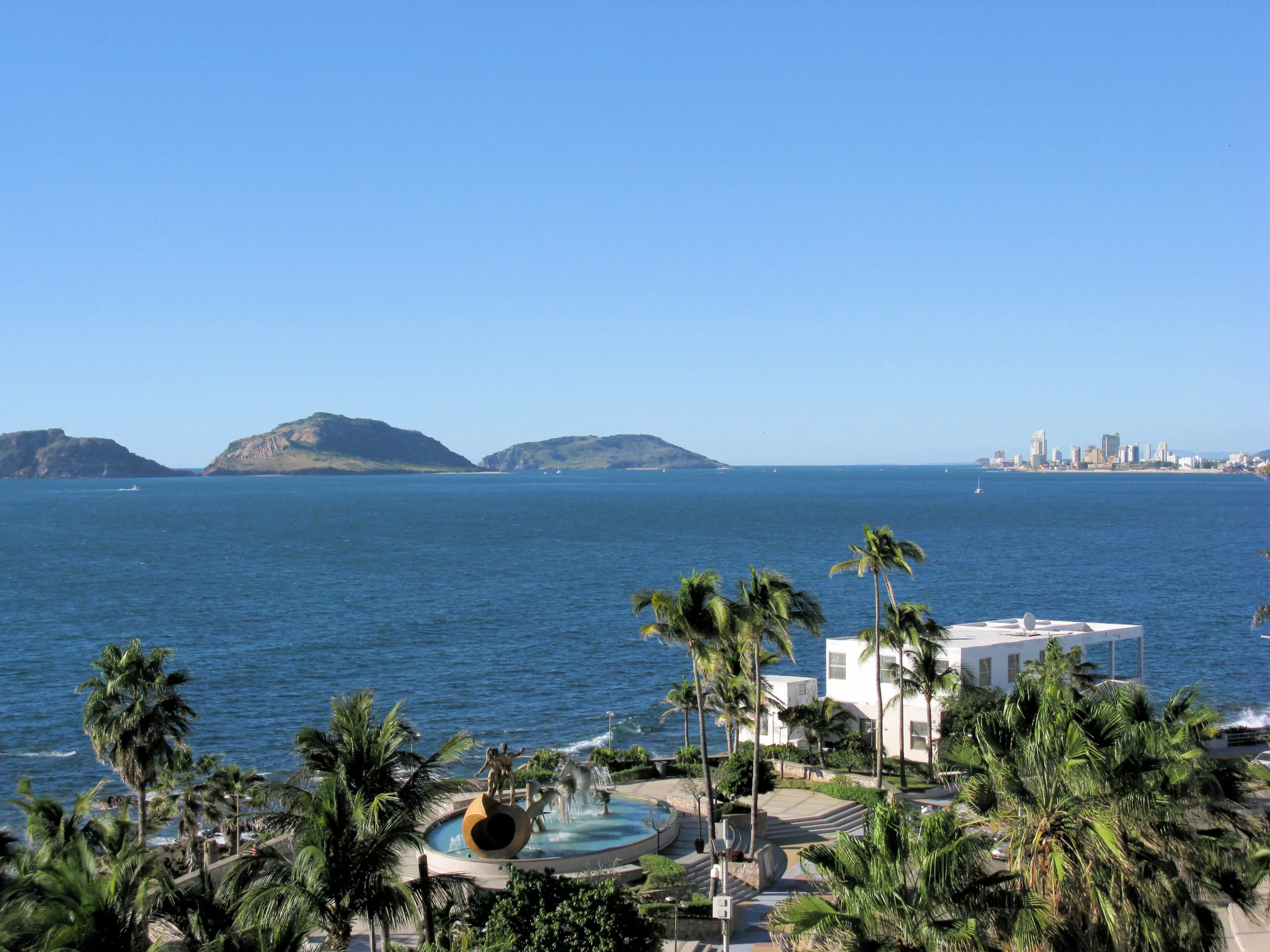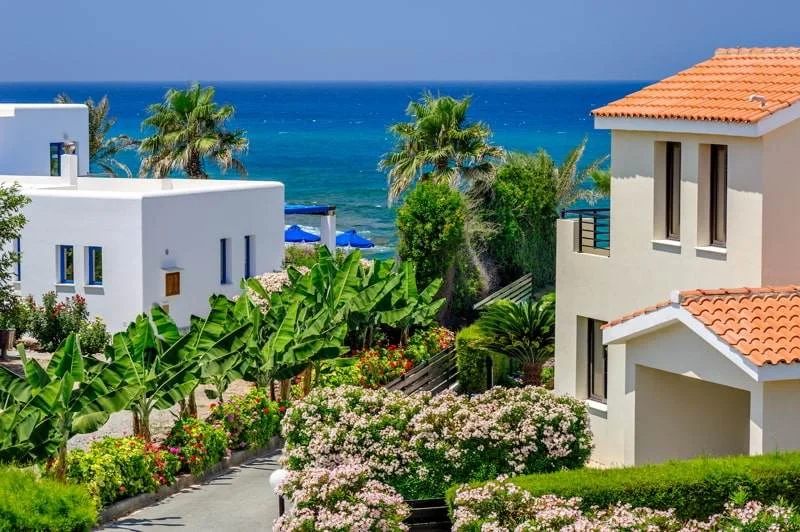Last week we looked at the top mistakes that can ruin your overseas property investment. (If you missed it, be sure to catch up here.)
Today, we’re going to take a step back right to the beginning of your scouting process—under the guidance of Senior Real Estate Correspondent Lee Harrison.
As you think about where you might go in the world—and whether you want a second home, a permanent place, or a pure cash flow venture—Lee’s insider tips below will help steer you down the right track…
Lynn Mulvihill
Editor, Overseas Property Alert
4 Secrets To Buying The Right Property In 2021
By Lee Harrison
The home my wife and I bought in Mazatlán, Mexico, a few years back is just what we were looking for—on the water, yet in the historic center. But finding the property and making the purchase was a lot harder than it should have been…
I spent too much time spinning my wheels… mostly due to failure to follow my own advice. More on that in a minute…
I have two problems that continue to slow me down when looking at real estate abroad. Counterintuitively, it’s actually harder to pick a property when you have absolutely no restrictions on where and what you might buy—and you have the whole world to choose from.
Think about it… When moving to a new employment location during your work life, the country, state, and often the city are already determined. Your selection of neighborhood is based on convenience for living and commuting rather than any expectation of fun, adventure, or profit. But, when buying a second home or investment property abroad, the options are virtually infinite, which makes choosing much harder.
Also counterintuitively, the more experience I have, the harder it is to choose a property. This is because all that experience gives me more to analyze, which means I can find fault with almost anything. I’ll come up with a great property in the end, but it doesn’t happen quickly.
Here in Mazatlán, my real problem was that I failed to choose a lifestyle from those available. I struggled between being on the beach… or in the historic center… or in a community of large homes just off the beach. Had I settled on a lifestyle first, the property selection would have followed more quickly.
So I thought I’d drop back and reconsider the basics. It’s a good way to kick off a new year and a good opportunity to reflect on my own experience.
Here’s the thought process I use to get started on an overseas purchase…
Step One: Honestly Examine Your Underlying Reasons For Buying Abroad
The most important step in the entire process takes place before you even know what country you’re focused on: You’ve got to think about why you’re buying and how you intend to use the property.

Buying A Retirement Residence
At one end of the spectrum are buyers who are interested in a retirement venue or overseas residence—a place that will be more or less permanent, or at least long-term. People in this category have it easy because they only have themselves to please.
You can get a property that’s just what you need—no more and no less—without being concerned about what a potential renter might want. You can ignore the vacation rental market, look in non-tourist areas, and stay as far off the beaten path as you like.
I’ve bought a few overseas properties that were intended simply to be my residence, and they were the easiest to choose.
Buying For Investment
At the opposite end of the spectrum is the investor. In this case, your personal preference for the size, location, and style of your property is secondary to the preferences of your potential renter or resale buyer.
In fact, an investor will often buy a property that they never use themselves. I bought a beautiful rental property in 2012 and never even entered the building after my initial viewing of the unit with the realtor.
Like a purely residential property, a pure investment property is also fairly easy to find because your objectives are simple and focused. You don’t even have to worry about living in the country you’re buying in.
Buying With A Mixed Agenda
In the middle—between the pure residential buyer and the pure investor—you’ve got everyone else who has some kind of mixed agenda such as a part-time resident who wants to rent out the property when he or she is not there.
Properties serving a mixed agenda are the most difficult to find thanks to competing sets of criteria. With this kind of mixed agenda, it’s imperative that one aspect of it—either the investment side or the personal-use side—have undisputed priority.
And this means you’ll usually have to make some compromises. For example, you may have to buy in a location that’s busier or more touristy than you like in order to be in an active rental area.
To use Medellín, Colombia, as an example, if I bought simply to enjoy a nice place to live, I’d probably buy in a quiet area of Laureles or Sabaneta. But to earn good rental income in a highly liquid market, I’d opt for the busier, upscale, and more-bustling El Poblado.
This self-analysis of your motives is important because it will determine where you look and what you look for.
And while it may sound easy, it’s not. It can be hard to be honest with yourself about your motives. If the property’s just for fun, that’s great; just remember this when you’re buying and don’t complicate the picture with investment data.
Step Two: Review These Basic Criteria When Considering The Country
No matter what kind of a buyer you are, you’ll need to pick a country that meets some basic criteria. Here are a few to consider:
- It should be a stable country where the rights of foreign buyers are secure and the purchase process is well-regulated and safe.
- The process for moving money in and out of the country must be reliable, with rights to expatriation of funds.
- You’ll need the ability to come and go freely and conveniently to the extent required to manage your property.
- The country should have an agreeable climate at least during the desired part of the year, either for you or for your renters and/or resale buyers.
- If you want to diversify outside the U.S. dollar, you’ll want a country that trades real estate in its local currency.
Additionally, if this is a retirement home, you’ll need to pick a country where you can obtain residency and have access to the banking system.
If you’re planning on part-year living, make sure you can stay as long as you’re planning to each year. I’ve obtained residency in four countries. Not because I needed all that for asset protection… but because I can go to each when I like, and stay as long as a like, with no restrictions.
Step Three: Focusing In On The Right Market
The city and neighborhood where you buy will be determined by your self-analysis in step one. As I said, if your only agenda is to find a pleasant place to live, your task is much easier.
Here are a few other things to consider:
- If you’re planning on renting your property, you’ll have to pick a location with an active rental market, even if it’s not your favorite area for living. The same applies if you’re planning to profit from a near-term resale. In this case you’ll want to look for undervalued areas (or a fixer-upper) and strong market trends.
- Local climate is important… more important than the general climate conditions of the country you’re in. Whether you’re on the beach in Ecuador or buying a ski cabin in the mountains of southern Chile, make sure the climate fits your needs… at least for the time of year you plan to be there.
- Accessibility is also key, both for your own convenience and for that of your renters or buyers at resale time. Make sure you’re reasonably close to a convenient airport with good connections that support your potential renters. In Mazatlán, for example, you’d look for good connections to western Canada… because that’s where 60% of the buyers come from.
- A local expat community may or may not be important to you, depending on how you’re using the property and your personal preferences. If it is, check out the expat scene firsthand while you’re looking for properties.
- Keep an eye out for neighborhoods that are close to any special interests, either your own or those of potential renters. I’m thinking of things like golf courses, ski slopes, lakes, beaches, or hiking trails.
When evaluating different areas, check out local real estate websites, expat blogs, and even TripAdvisor. They’re all good sources of local info.
Once you’ve settled on the right neighborhood, it’s time to hit the pavement. I’d suggest staying in the neighborhood that you’re considering buying in—if possible—in order to give yourself day-to-day, firsthand experience in the area. If available, I try to stay in a furnished rental apartment (rather than a hotel) so I know what it’s really like to live there.
I did a “trial stay” like this before buying in Mazatlán, and two of my potential neighborhoods failed the test.
Step Four: Homing In On The Right Property
This might be the easiest part of the mission, or the hardest.
A relative beginner will pick a property that they like and that fits their criteria… while an experienced buyer will nitpick dozens of properties (or more) over a period of weeks (or more) before they settle on something. At least that’s been my personal experience with my own buying trips.
Here are a few things to keep in mind:
- Look at enough properties to get a feel for the market. Any single property (or two) may not be indicative of what the market holds, or of a fair price. Look at enough to be comfortable that you know what things are selling for.
- Keep track of the cost per square meter of each property so you can spot the outliers. I like to keep a spreadsheet with prices, sizes, costs per square meter, homeowner association fees, and property taxes for easy reference and comparison.
- Remember that the real estate business abroad is often far different than it is back home. In Medellín, everyone I worked with was professional and honest. In Uruguay (which is noted for its honest culture), I had agents inflate the owners’ asking prices by as much as 30%.
- Ask the advice of any expats you meet. They’re a great source of info on neighborhoods, lifestyles, and good agents.
- If you’re planning on renting out your property, interview a property/rental manager or two. They’ll be happy to point out the locations where they could use more rentals… and in my experience, there’s no better way to find out.
- Get a handle on remodeling costs by asking a local real estate agent. If you end up seeing a fixer-upper with potential, you’ll be glad to have those costs on hand.
And speaking of property managers, if you’re planning on renting, the selection of your property manager will probably be the most important decision of your entire experience. A good property manager will make owning a rental a relatively carefree experience that makes you money… while a bad one will do just the opposite.
Buying property abroad will be one of the most rewarding and exciting experiences of your lifetime. It will open the door to amazing opportunities for profit, lifestyle, and adventure. And, once you’ve clearly identified what you want, making it happen will be fun and easy.

